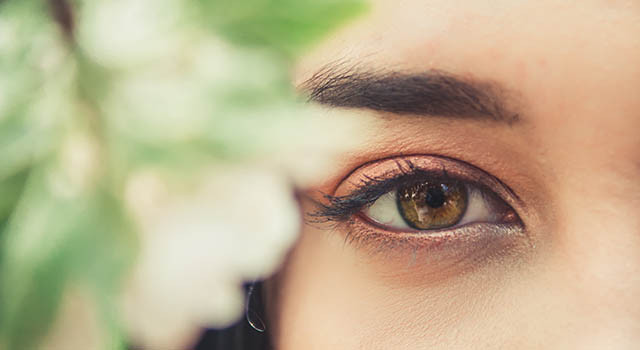You’ve probably heard that carrots are one of the best foods for your eyes. You’ll also find several eye-focused organizations, such as the American Academy of Ophthalmology, recommending sweet potatoes, apricots, cantaloupes, oranges, and grapefruits.
But have you ever asked yourself why? What makes these foods good for the eyes? What do they have that others don’t?
That’s what we want to discuss – the specific nutrients in carrots and other eye-friendly foods and how they optimize your eye health. Let’s take a deeper look at these to see how you might incorporate them into your life. The articles about eye vision were written by PureHealth Research professionals.
NB: The American College of Ophthalmology has compiled a list of 36 foods to consider if you’d like to boost your eyesight.
8 Nutrients to optimize your eye health
The following are eight of the most important nutrients to optimize your eye health, according to scientific studies. Other nutrients may also improve eye function. However, the eight below are at the top of the list.
1. Vitamin A
Vitamin A helps the eye convert light into a signal transmitted to the brain, allowing us to see well even in low-light conditions. Additionally, it is critical for the health of the cornea (the clear front of the eye). The cornea can literally disappear in acute cases of vitamin A deficiency.
Besides carrots, animal-derived foods, including eggs, liver, yolk, and dairy products, are the richest source of vitamin A.
2. Vitamin C
Vitamin C is a powerful antioxidant that can protect your eyes from damaging free radicals. It forms part of the famous AREDS supplement that can reduce the risk of age-related macular degeneration (AMD) by 25% when taken daily.
Vitamin C is also critical for the formation of collagen that gives structure to the sclera and retina. It can also reduce the risk of developing cataracts. Excellent dietary sources include tropical fruits, bell peppers, broccoli, and kale.
3. Vitamin E
Most eyesight problems are caused by oxidative stress, an imbalance between oxidants and free radicles in the body. Vitamin E is another excellent antioxidant that can help slow down oxidative stress in the eyes. Studies show that taking 400 UI of vitamin E in an AREDS supplement can reduce AMD progression by 25%. Vitamin E can also reduce the risk of age-related cataracts.
Some of the best sources of vitamin E are nuts, seeds, healthy oils, avocado, leafy green vegetables, and salmon are other excellent considerations.
4. Omega-3 fatty acids
A recent study published in Investigative Ophthalmology & Visual Sciences shows that an omega-3 fatty acid known as DHA, which makes up 30% of brain matter, helps prevent age-related vision loss. Indeed, DHA deficiency can cause impaired vision. Omega-3 also reduces dry eyes and may reduce the risk of diabetic retinopathy.
Oily fish and other seafood are the best sources of omega-3 fatty acids to optimize your eye health. However, nuts, seeds, and plant oils also contain substantial quantities of mega-3.
5. Gamma-Linoleic Acid (GLA)
Gamma-Linoleic acid is an omega-6 fatty acid found in small amounts on modern diets. It has anti-inflammatory properties and has shown promise in treating dry eyes. In one randomized control study, women with dry eyes who took GLA exhibited significantly improved symptoms after six months.
The best dietary sources of GLA are primrose oil and sunflower oil. In fact, in the randomized study above, primrose oil with 300 mg of GLA was used.
6. Lutein (L)
Lutein is a carotenoid with reported anti-inflammatory properties. It is known to improve or even prevent age-related macular disease, the leading cause of blindness and vision impairment. Lutein is particularly effective in improving macular pigment optical density (MPOD) levels, visual acuity, and contrast sensitivity.
The best sources of dietary Lutein are spinach, Swiss chard, kale, pistachios, parsley, and green peas. Egg yolk, sweet corn, and red grapes are also excellent choices.
7. Zeaxanthin (Z)
Lutein and Zeaxanthin often come together. Nevertheless, they’re not the same. While both are carotenoids, Z is more concerned with protecting the eye from the harmful effects of oxidation and light-induced damage.
The best sources of dietary Zeaxanthin are the same foods we mentioned under Lutein. They include dark green vegetables, egg yolks, and orange and yellow fruits. In fact, Zeaxanthin is the yellow pigment that gives saffron, paprika, and corn their characteristic colors.
8. Zinc
Finally, this list would be incomplete with zinc. Though it’s also important for the immune system, brain, and other body parts, zinc plays a critical role in keeping your eyes healthy and functional. Indeed, the body naturally stores high levels of zinc in the macula (part of the retina), where it combines with Vitamin A to form melanin. Melanin acts as a photo screen by scattering UV light. It also scavenges light-induced free radicals.
The best sources of dietary zinc include oysters, beef, lobster, pork, yogurt, zinc-fortified breakfast cereal, baked beans, and cashews.
Water is Important Too
We didn’t include it, but water is also critical for the health of your eyes and optimal vision. Drinking plenty of water can cause dehydration which is associated with dry eyes.

